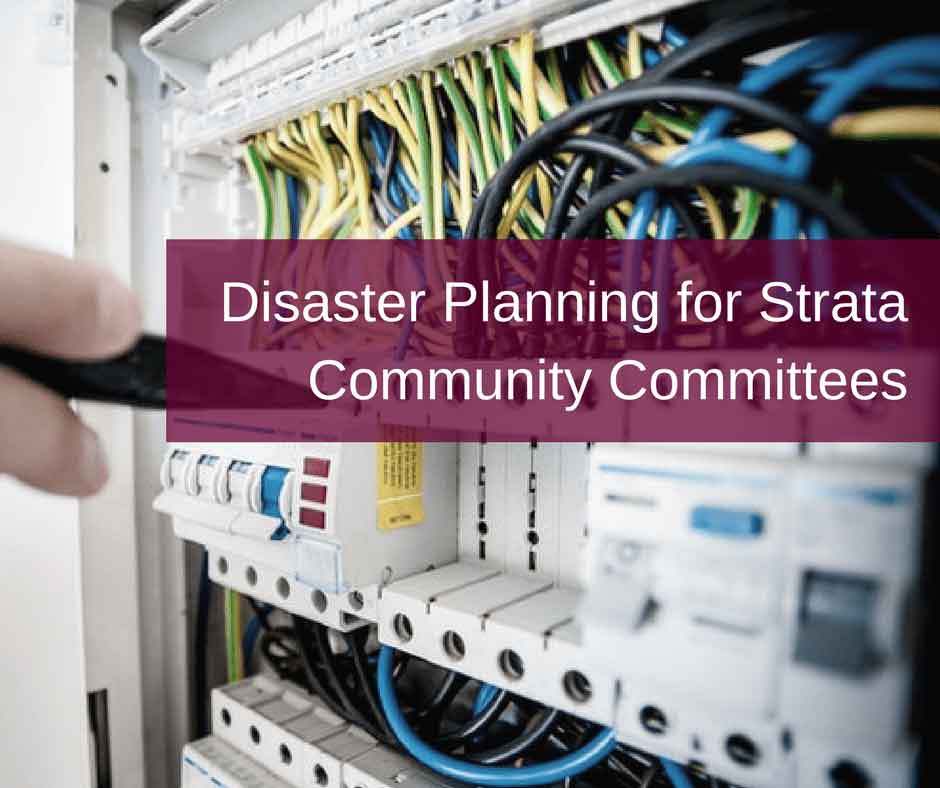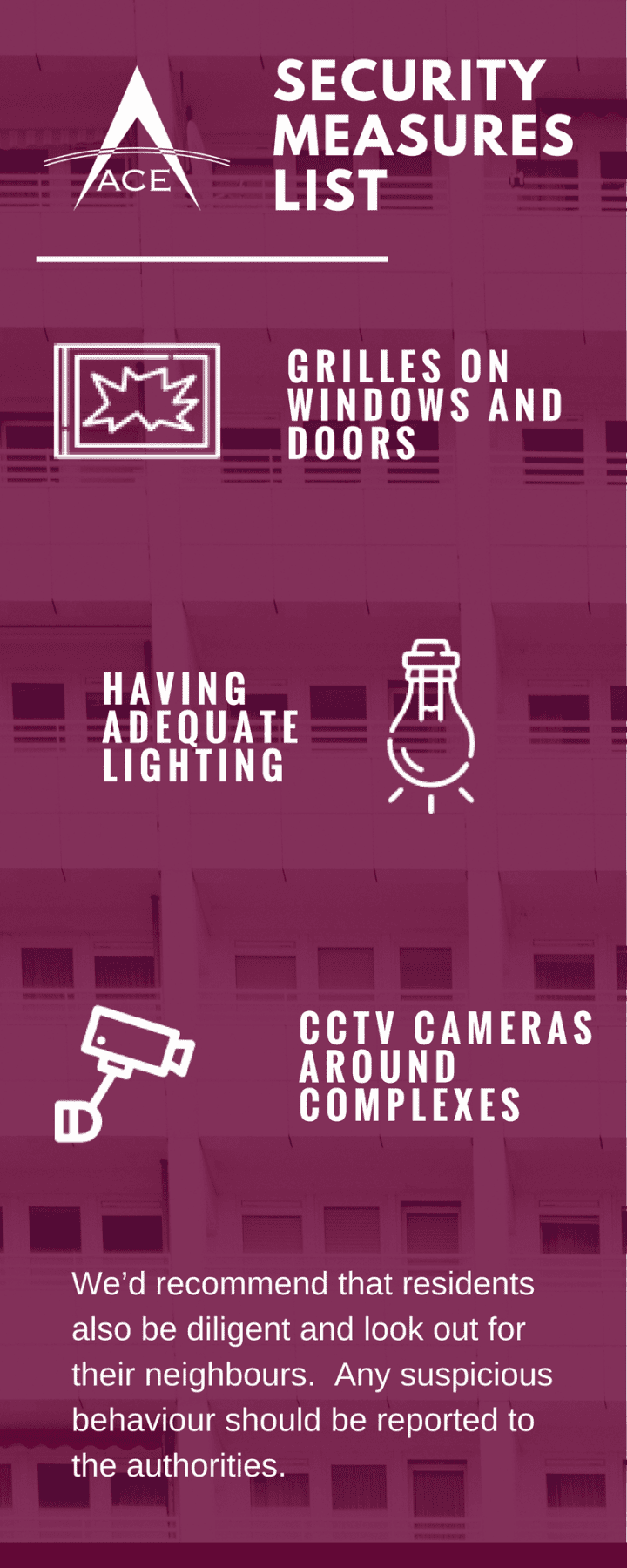
“Death Trap” Pools Under Spotlight
October 11, 2017
Disaster Planning For Strata Community Committees
December 21, 2017
“Death Trap” Pools Under Spotlight
October 11, 2017
Disaster Planning For Strata Community Committees
December 21, 2017APARTMENT OWNERS URGED TO TIGHTEN UP SECURITY AHEAD OF POTENTIAL ‘HOLIDAY HEISTS’

Expert Opinion piece – Stephen Raff, CEO of Ace Body Corporate Management.
"
Apartment owners be warned, Santa might not be the only person dropping into the house in the dead of the night these holidays, with ‘holiday heists’ a growing concern for strata complexes.
December, 2017
By Stephen Raff
By Stephen Raff
According to a report on claims data from RACV Insurance, rented properties are 70 per cent more likely to be burgled than owner-occupied homes, and experts say that densely-packed urban areas where apartment living is rife are targets for opportunist thieves.
And on top of this, figures from the NSW Bureau of Crime Statistics and Research also show that Christmas and New Year’s Eve are peak times for burglaries and break-ins with an increase in daily offences up to nearly 30 per cent during the holidays.
Police records are showing an increase in property crime in Australian regions, with particular emphasis on secure apartment complexes and owners need to be vigilant ahead of the holiday period.”
Of major concern is mailbox theft, due to many residents and owners not collecting mail during the holiday period, which opens communities up to serious identity theft.
In some cases it’s easier for burglars to get into larger apartment complexes where tenants would be less concerned about letting unfamiliar faces in.
So often it is a case of poor processes being exploited by thieves, and we’re eager to owners make a concerted efforted to follow their community security policies as closely as possible to deter thieves.
This month, 19 break-ins occurred over a night in by a suspected group in Townsville, many of which were facilitated by unlocked properties.
And on top of this, figures from the NSW Bureau of Crime Statistics and Research also show that Christmas and New Year’s Eve are peak times for burglaries and break-ins with an increase in daily offences up to nearly 30 per cent during the holidays.
At Ace, we’re urging strata communities to be aware of the increased risks of property theft over the holidays and to ensure that the proper security measures are in place to prevent a potentially devastating incident.
Police records are showing an increase in property crime in Australian regions, with particular emphasis on secure apartment complexes and owners need to be vigilant ahead of the holiday period.”
Of major concern is mailbox theft, due to many residents and owners not collecting mail during the holiday period, which opens communities up to serious identity theft.
In some cases it’s easier for burglars to get into larger apartment complexes where tenants would be less concerned about letting unfamiliar faces in.
So often it is a case of poor processes being exploited by thieves, and we’re eager to owners make a concerted efforted to follow their community security policies as closely as possible to deter thieves.
This month, 19 break-ins occurred over a night in by a suspected group in Townsville, many of which were facilitated by unlocked properties.
Ace is encouraging strata communities to be one step ahead when it comes to property security.

Of the hundreds of thousands of burglaries recorded in Australia annually, the most common methods of entry are through an unlocked door or window, even at times when occupiers are inside.
Security measures like having grilles on windows and doors, having adequate lighting or CCTV cameras around complexes act as deterrents for potential thieves.
They’ll be looking for easy targets so setting up more obstacles for them to tackle may stop them from scoping out your building in the first place.
Unsecured apartment complexes present thieves with a ‘one stop shop’ to explore crimes like mailbox theft, car and property theft so it’s important both owners corporations and owners alike start taking steps to ensure their communities are a hard nut to crack.
We’d recommend that residents also be diligent and look out for their neighbours. Any suspicious behaviour should be reported to the authorities.
Security measures like having grilles on windows and doors, having adequate lighting or CCTV cameras around complexes act as deterrents for potential thieves.
They’ll be looking for easy targets so setting up more obstacles for them to tackle may stop them from scoping out your building in the first place.
Mr Raff says when you consider how many residents collectively live in apartment and unit blocks, it’s no wonder why strata communities are being targeted.
Unsecured apartment complexes present thieves with a ‘one stop shop’ to explore crimes like mailbox theft, car and property theft so it’s important both owners corporations and owners alike start taking steps to ensure their communities are a hard nut to crack.
We’d recommend that residents also be diligent and look out for their neighbours. Any suspicious behaviour should be reported to the authorities.
Ace Body Corporate Management
www.acebodycorp.com.au
www.acebodycorp.com.au
This article is not intended to be personal advice and you should not rely on it as a substitute for any form of advice.Ace Body Corporate Management offers this newsletter to clients to assist in updating them on company and industry news. The content within this newsletter is of a generic nature and may not be applicable to all owners corporations. Ace Body Corporate Management attempts to provide the most up-to-date and accurate information for our clients, however we strongly recommend that individuals and committees seek further advice before acting on any information in this newsletter.

